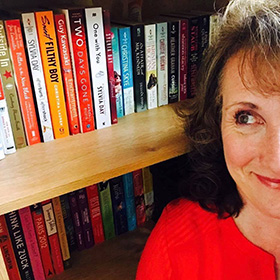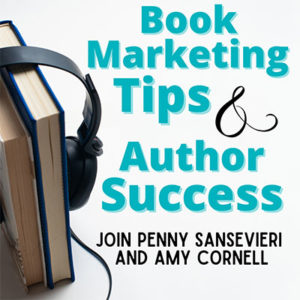Every author wants to get more book reviews – they help build buzz, inform potential readers and buyers about your book and when done well, give enough information about your book to intrigue without giving away all the pertinent details.
So once you’ve built a list of reviewers to go after, it’s time to start pitching.
While this may not seem difficult, it’s amazing how many authors make some big mistakes at this stage, everything from poorly written subject lines to impersonal (unimpressive) pitches to not providing the appropriate book details.
Quality Over Quantity Rules
Your email subject line should be brief, yet clear and interesting.
You don’t have room to write a novel on the subject line and you want the recipient to be clear what your email is about. In fact, the sweet spot tends to be at 7 words.
If you’re pitching media that’s used to getting book pitches and doing book reviews they may have a format for you to follow, a lot of bloggers fall into this category, and in that case don’t get cute – follow their rules.
If you’re pitching media that’s not book-centric then your subject needs to make it clear what your topic is about while also setting the stage for your unique point of view or approach.
Because no one in media wants to have the exact same conversation they’ve had before, setting yourself apart is key. Also, don’t be afraid of a little shock value. We’re all more inclined to open an email if the subject intrigues us, and usually a little shock value, or an unexpected twist on something we’re familiar with, adds to this strategy.
Your opening sentence needs to be a BAM moment. Hit them over the head with something exciting, shocking, superbly sensual…you get the idea, make it work for your topic or genre but pretend that’s all you get to say before offering them your book and you’ll make it better.
For fiction, the bulk of the pitch can’t be a book report or glorified synopsis. That’s boring. The only exception is if you’re pitching a book that’s really early in production, isn’t on Amazon, isn’t represented on your website, etc. Imagine you’re creating the written version of a movie trailer, and aim for that level of intrigue.
For non-fiction, be sure to use bullets to highlight the best selling aspects of your book, what your unique point of view is, why your approach to your topic far exceeds what’s already out there.
Personalize Everything You Send
First of all, most bloggers identify themselves somewhere on their blogs – if they don’t sign their posts with their name, the “about me” section typically lists their name or nickname.
If you’re pitching bigger media you’re likely using a database or list you purchased, or you’ve done your due diligence and collected the info you need from the individual’s byline and other online sources.
When you use a person’s name one thing is instantly clear: you actually took the time to find out who you’re pitching. That’s a big plus. Introduce yourself (briefly), and then don’t just ask them to review your book, give them a reason – have they reviewed other books similar to yours? Do they specialize in reviewing books in your genre?
It’s important to explain who you are, what your book is about, WHY this reviewer should be interested in your book and provide links to your website so they can follow up, learn more about your book and decide whether they’d like to request a review copy.
If you did your homework during your research phase you may know some things about this individual that might help you get a review request. For instance, if they love a particular author and your book is in a similar vein, that’s something you can put in your pitch. Or if they’ve recently covered someone else that speaks to your topic you can address what sets you apart.
Timeframe for Replies
You may or may not hear back right away. Sorry, it’s true.
Each media person has a different schedule – some people check email daily, others may only check weekly. Be patient.
Follow up in a couple of weeks if you really felt you matched up with a particular blog and didn’t hear back. If you’ve reached out to bigger media and want to follow up, send a tie your pitch into a timely topic in the news or in your industry and remind them why you’re an ideal candidate to speak to it.
After that, if there’s still no word, let it go.
If you do receive a “No thank you,” move on, it’s definitely not an invitation to try to and convince them otherwise but you may thank them for taking the time to reply, and encourage them to keep your info stored away if another opportunity opens up in the future.
Leave a positive impression without being a pest.
Out of the Box Pitching Ideas for Book Reviews
Fiction and nonfiction authors typically take a different approach when pitching.
For fiction, it may seem obvious to seek bloggers who review books in your genre; but if your fictional book covers topics that you are an expert in, you may have some other options.
For instance, if you heavily researched the history of a city or a historical figure you may find bloggers who are history buffs who might be open to reviewing your book. Or if you’re a medical professional who has gone into writing medical thrillers, you have a unique perspective that could be a really great interview opportunity for a blogger.
With nonfiction, you’re an expert on the topic at hand and should look for your peers in those areas when seeking book reviews. But keep in mind you don’t want to limit yourself, and a book review may be a big ask so be smart when asking for their help – maybe it’s a spotlight, or feature, or interview or guest piece you want to discuss with them.
It’s much more competitive in this realm, but instead of deciding not to pitch someone who could be a competitor see if there are ways for you to help each other – and use that as part of your pitch. I promote a lot of pieces from other people in the book industry because they have great perspective on areas I don’t always cover – and they do the same for me.
You never know what kind of partnership you can develop if you don’t ask!
And as I mentioned previously, if you write non-fiction you have to be timely. Connecting yourself to something in the news cycle or happening in your industry or something you’re predicting, helps the media do their jobs and is more likely to garner you a yes.
Whether your write fiction or non-fiction, brainstorm a list of topics from your book, fact or fiction, in order to generate ideas of what type of publications or bloggers you should target.
When prepping to start going after book reviews don’t forget to do your reader profile as well, there’s a link to our free one in the Resources and Downloads section. Understanding who your readers really are, should inspire some unique pitch angles as well.
Resources and Free Downloads
FREE reader profile brainstorm
125 book promotion ideas to sell more books and build your brand
Secure more media with 10 critical book marketing strategies





0 Comments